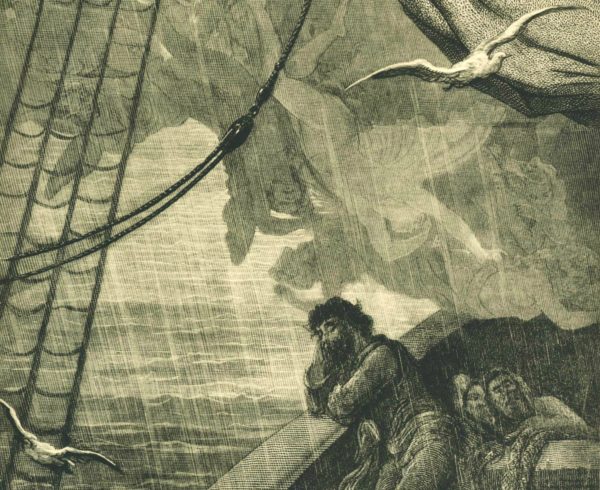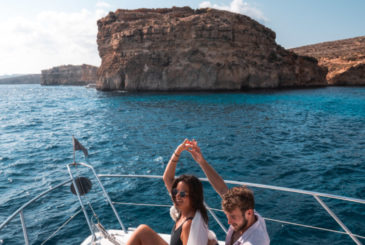Like a good superstitious story? Let's explore a few common sea superstitions that have been passed down generations of seasoned sailors and boating folk through the centuries.
Dating back thousands of years, seafaring stands among the oldest occupations in the world. The sea’s immensity can reach the darkest depths, and its strong and boundless forces have led to many an inexplicable occurrence on journeys of trading and exploration. As a result, sailor superstitions were created to help deal with or interpret mysterious – sometimes even tragic – occurrences at sea, as well as to make seafarers feel safe and protected while riding the uncontrollable waves.
Bananas on Boats Superstition
Bad luck on board is not just about slipping on a banana peel. As early as the 18th century this tropical fruit was thought to bring misfortune to several trade ships carrying bananas as cargo. Additionally, the fact that bananas can go bad so quickly meant that these vessels needed to reach their destination as fast as they could to prevent spoilage. As a result, fishermen aboard did not really have the opportunity to catch anything. Bananas also attracted a particular deadly spider that would hide inside banana bunches and cost crewman their life if bitten.
Boaters nowadays still continue to avoid coming into contact with bananas in all its forms while at sea, with some even avoiding banana-scented sun care products!
The Femme Fatale

Women aboard sea vessels have long been considered to bring bad luck. The presence of the fairer sex on board was seen to distract the male seafarers, consequently fuelling the wrath of the sea gods and agitating the waters. But here lies an ironic twist: women in the nude, on the other hand, were believed to actually calm the billowing waves, and unclothed female busts typically featured as figureheads perched on many a sailing ship’s prow. These figures’ bare breasts were thought to have the power to shame the stormy seas into a lull, while their wide open eyes pointed the way to safety at the next port of call.
Baby Boy Ahoy!
Did you know that in the history of maritime superstitions, the birth of a male child on board is a sign of good luck? This is especially so if the baby is born on the first night out at sea. Luck has always been associated with baby boys on board, so much so that this is where the phrase ‘son of a gun’ hails from, since the gun deck was the most convenient place to give birth on a ship.
Creatures of Sea and Sky

Here's yet another of the common superstitions at sea: the albatross bird was believed to carry the souls of dead sailors, and it was considered terrible bad luck to kill one. However, spotting this seabird soaring in the sky was thought to bring good fortune upon the travelling ship.
Down in the deep dark waters, a shark following a ship signified inevitable death, while cheerful dolphins swimming alongside the vessel were deemed portents of good fortune.
Danger: Code Red
A sailor or passenger’s encounter with a redhead just before boarding was believed to bring bad luck to a ship or sailors' boat. However, if one managed to speak to the redhead before they even got the chance to say a word, the boat would be as safe as houses.
And speaking of red, who isn’t familiar with the old saying "red sky at night, sailor's delight; red sky in the morning, sailors take warning"? This easy-to-remember nautical superstition provided an early form of weather forecast for mariners at sea.
Did You Know?
Touch wood and ship shape are both expressions which hail from the sailing world. This refers to the ancient practice of knocking on wood by sailors in order to detect the presence of wood rot on board.




